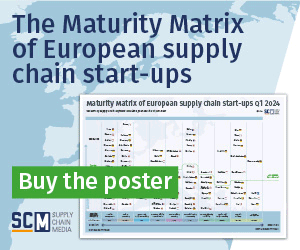Master and talent

Now that most employees are working from home because of COVID-19, it is more important than ever to keep an eye on their engagement and the risk of a burnout. Apparently, North American supply chain teams suffer more burnouts than European ones, according to the recent supply chain talent development survey conducted by Lora Cecere of Supply Chain Insights. Supply Chain Media supported this previously exclusively US study to help understand the differences between the USA and Europe.
The survey also reveals that more European supply chain professionals are satisfied with their current job than their US counterparts (80% versus 58%). Lora Cecere attributes this to higher employee turnover, limited protection against redundancy and fewer vacation days in the USA. She further concludes that the quality of European universities is superior to US ones because of the emphasis on problem-solving skills, plus there is a greater focus on on-the-job training in Europe.
In my view, these conclusions confirm the advantages of the Rhine model in Europe over the Anglo-Saxon model used in the USA and the UK. When applied to management, the Rhine model focuses on developing the self-reliance of employees. It can be traced back to the master-mate principle of the guilds in the Middle Ages when mates – ‘talents’ – were paired with experienced masters – ‘mentors’ – to learn their skills.
A 30-year-old supply chain talent at the German multinational Henkel recently told me that she not only has a mentor and coach of her own, but that she herself also ‘reverse mentored’ the company’s experienced Chief Procurement Officer a few years go. Additionally, Henkel encourages all employees – from operations to management – to contribute innovative ideas in a clear bottom-up approach.
American high schools
In the USA, companies are primarily top-down and very directive with KPIs that are set in stone. This mindset can be traced back to American high schools, where pupils can compete in almost everything… from mathematics to cheerleading. This excessive competitiveness can’t fail to result in disappointment among both winners and losers once these fledgling talents enter the business world. Today, supply chain leaders should be asking the workforce for suggestions on how to support employee mental health.
Martijn Lofvers, Chief Trendwatcher Supply Chain Media
martijn.lofvers@supplychainmedia.nl






